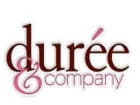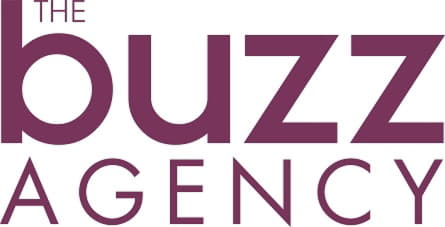The COVID-19 pandemic claimed another victim late last month, forcing car-rental company Hertz (NYSE:HTZ) into Chapter 11 bankruptcy protection. While a surprisingly progressive jobs report for May and easing restrictions on commerce have sent the stock almost back to its pre-bankruptcy levels, it's still moving forward with its court filing. Remember, Hertz wasn't exactly in superb shape headed into the coronavirus headwind.
That tough decision raises a question about rival Avis Budget Group (NASDAQ:CAR). Namely, can one company avoid the fate of its seemingly similar rival? More specifically, is Avis on the same path to bankruptcy as Hertz (particularly if the coronavirus' impact on car rentals lingers)?
As it turns out, these companies may be in the same business, but they sport rather different expense and efficiency ratios, which might explain why Hertz is bankrupt and Avis Budget isn't.

IMAGE SOURCE: GETTY IMAGES.
Small differences add up in a big way
To fairly -- and meaningfully -- compare these two rivals, we have to go back to a time before the coronavirus was a problem for either. And, we also need a full year of data rather than one quarter's worth.
To that end, Comparing Hertz's 2019 to Avis Budget's 2019 -- both of which ended in December -- is a true apples-to-apples comparison. To make the comparisons even easier to understand, each major income statement line, balance sheet item, or cash-flow figure has been calculated as a percentage of each company's revenue.
| Metric | Hertz | % of Revenue | Avis Budget | % of Revenue |
|---|---|---|---|---|
| Revenue | $9.78 billion | NA | $9.17 billion | NA |
| Operating expenses | $5.49 billion | 56.1% | $4.70 billion | 51.2% |
| Vehicle depreciation/lease charges (net) | $2.57 billion | 26.2% | $2.06 billion | 22.5% |
| Selling, general & administrative spend | $969 million | 9.9% | $1.24 billion | 13.5% |
| Vehicle debt interest | $494 million | 5.1% | $344 million | 3.8% |
| Corporate debt interest | $311 million | 3.2% | $263 million | 2.9% |
| Free cash flow | ($50 million) | (0.5%) | $277 million | 3% |
It's also worth noting that Hertz's fleet spending as a percentage of revenue may actually be somewhat understated, as $672 million worth of last year's $9.1 billion top line was categorized as "all other operations" rather than the result of actual rental revenue.
| Metric | Hertz | % of Revenue | Avis Budget | % of Revenue |
|---|---|---|---|---|
| Net vehicle debt | $12.95 billion | 132.4% | $11.07 billion | 120.7% |
| Non-vehicle debt | $2.89 billion | 29.6% | $3.44 billion | 37.5% |
| Vehicle fleet value (net) | $13.79 billion | 141% | $12.18 billion | 132.8% |
| Average rental fleet (in units) | 715,602 | NA | 660,461 | NA |
| Total available car rental days (in thousands) | 261,195 | NA | 241,068 | NA |
Given the numbers above, it's no surprise Hertz's total debt owed on its fleet is considerably greater than Avis Budget's even though the sheer size of its fleet of vehicles gives the company access to revenue-bearing days. A bigger fleet valuation isn't necessarily a good thing in the car rental business, though, as those cars perpetually lose value. Eventually, they'll each be sold at a price far lower than what was paid to procure them -- after the company has had to make steeper interest payments on that fleet.
That's still not the whole story, though. The important matter remains of how cost-effectively and efficiently each of these companies utilizes its respective fleet. This is where the small disparities indicated above turn into bigger disparities.
Interestingly, Hertz's average monthly deprecation of $245 on each of its vehicles is actually less than Avis Budget's typical $265. And for the record, Hertz generally has more of its cars and trucks rented out than Avis does. Hertz's utilization rate was 79% for 2019, versus Avis Budget's 71%. The difference-maker was the amount of revenue collected while each company's vehicles were in use by a paying customer. At an average of $54.63 per day in 2019, Avis Budget's daily revenue per vehicle was 25% better than Hertz's $43.73.
Even with a lower utilization rate, Avis Budget is collecting more revenue per vehicle per month.
| Metric | Hertz | Avis Budget |
|---|---|---|
| Vehicle utilization rate | 79% | 71% |
| Depreciation & lease charges per month, per vehicle | $245 | $265 |
| Revenue per day, per vehicle | $43.73 | $54.63 |
| Revenue per month, per vehicle | $1,049 | $1,157 |
DATA SOURCES: HERTZ 2019 FULL-YEAR REPORT AND 10K FILING, AVIS BUDGET 2019 FULL-YEAR REPORT AND 10K FILING.
Don't jump to conclusions, but...
Companies are more than just numbers, of course. It's also possible Hertz is simply thinking strategically about shedding much of its debt burden, which appears to push the company just past the point of the fiscal health it needs to be able to maintain. This also isn't to suggest Avis won't file for bankruptcy protection in the future, particularly if the economic echoes of COVID-19 continue to ring for a while and turn into a recession. Never say never.
Numbers still tell much of the story for a company, though, particularly when stacked up against the numbers of that company's rivals. Hertz has an expense problem, much of which reflects debt specifically linked to its automobile fleet. The remainder of its fiscal challenge largely stems from markedly lower rental prices on a larger fleet of cars that loses total value -- as a whole -- faster than Avis Budget's fleet loses.
However Hertz's bankruptcy shakes out, those are a couple of key details that can't be ignored going forward.
Where to invest $1,000 right now
When investing geniuses David and Tom Gardner have a stock tip, it can pay to listen. After all, the newsletter they have run for over a decade, Motley Fool Stock Advisor, has tripled the market.*
David and Tom just revealed what they believe are the ten best stocks for investors to buy right now… and Hertz Global Holdings, Inc. wasn't one of them! That's right -- they think these 10 stocks are even better buys.



















